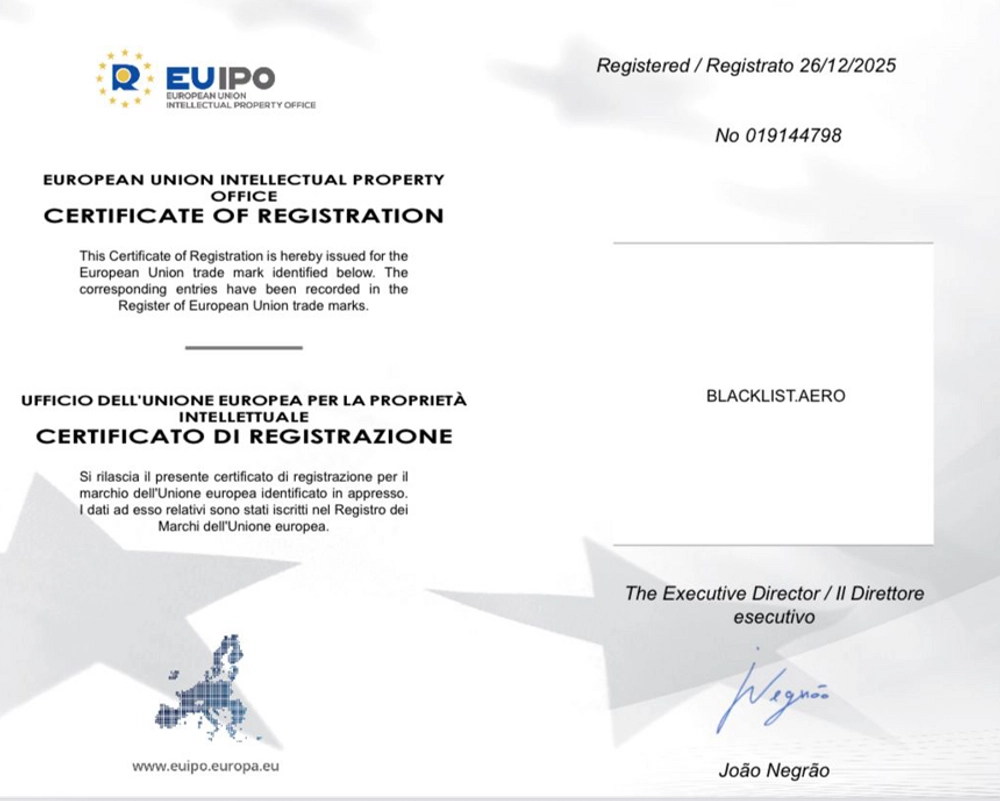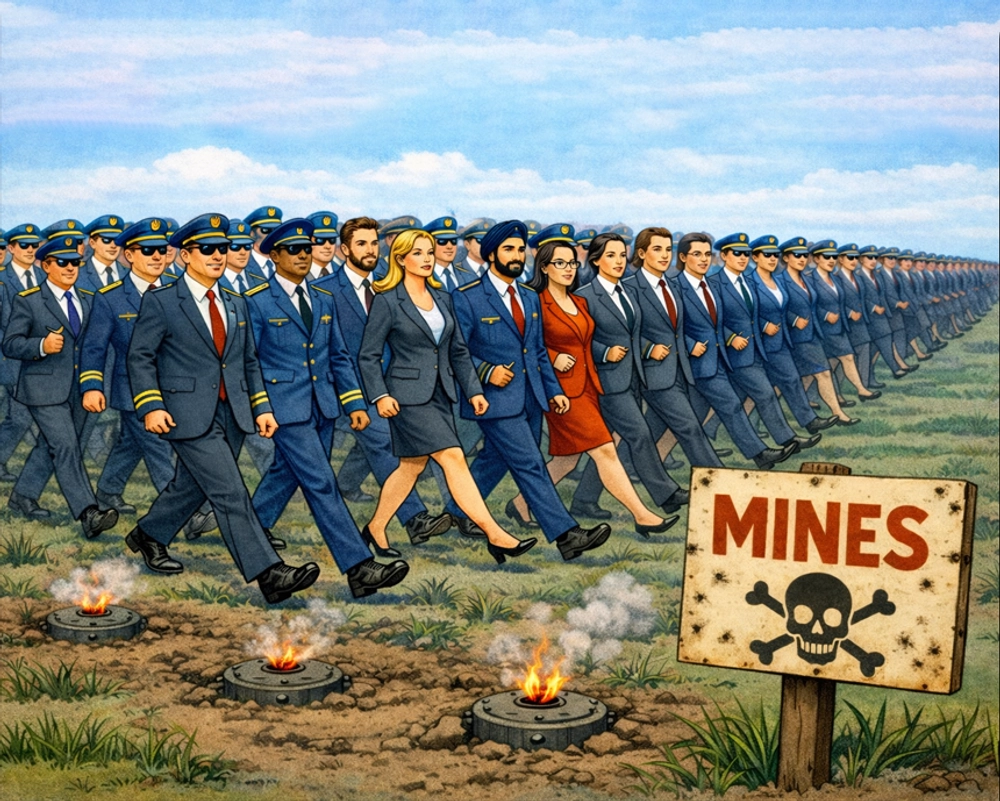3 TYPES OF DEFAULTERS. FIELD NOTES BY BLACKLIST.AERO

During our work with defaulters, collecting information about them and communicating with most of them personally, nolens volens, certain observations appear. We joke within a team that soon it will be possible to write a doctoral dissertation on the psychology of non-payers!
This is together funny and sad. Every case of non-payment or outright fraud is someone's small or big business problem. And, occasionally, non-payments of counterparties become such a critical burden that one or another company is forced to close.
Our first field notes describe the three most common types of defaulters, classifying them according to their motivation for not paying debts.
Type 1. “Victims of circumstances”
The most common group of non-payers. As a rule, they try to explain their non-payments by the fact that they themselves did not receive payment from a particular client. Most often, they are driven by anger and resentment: “Our client did not pay us, why should we pay our supplier?!”. They are ready to be unfair to their creditor precisely because someone has dealt unfairly with them.
In the work with such non-payers, we try to get to their understanding the two most important messages:
1. Although your company, as a supplier of goods or services, has faced a problem with your customers, you have no moral or legal right to do the same with your own suppliers. It is immoral and dangerous in terms of creating a large chain of non-payments if everyone uses this excuse.
2. The BLACKLIST.AERO team is ready to fight for the return of your non-payments in the same way that we are currently fighting with you for the return of money to your creditors.
We try to explain to the owners and top managers of such companies that justice exists, but it is worth fighting for. And the first step should be that their own company should stop being on the side of injustice, playing along with the villains.
Is it effective to conduct such “preachy” activities? Definitely - yes. Our conclusions are confirmed not only by the amount of money returned, but also by the fact that repeatedly former defaulters, having paid their debts, register as PRO Account Users in BLACKLIST.AERO and create cases in relation to their own defaulters!
It is extremely important to show non-payers from the first group the right way. In the literal sense: “To set the right path”, no matter how moralistic it may sound. Because if such non-payers do not meet with serious opposition to their impious actions, and one or another non-payment goes relatively smoothly for them, then they begin to think about why not take this as a rule?! And very quickly they become representatives of the second group of non-payers, about which below...
Type 2. “Serial or systemic defaulters” (practically like “Serial killers”)
This group includes non-payers who have fully tasted the joys of “debt forgiveness”. More precisely, they saw that in the aviation world there is so much competition and so much disunity between market participants that they can take full advantage of this for the sake of their dirty deeds.
Such defaulters feel like they are truly the kings of the aviation market, acting on the principle: “Divide and rule”.
Did you owe money to some company and it stopped providing services to you? No problem! There will always be a couple of dozen others who will gladly serve you, reporting to management that they “poached a client from competitors”!
This rush toward a client, whoever he gutted before you, is reminiscent of the 2008 banking crisis in the United States. Then the banks burst like soap bubbles because only the numbers of loans issued were important to their managers. More and more. Just to show cool reporting and get their annual bonus! No one thought about the quality of borrowers and what consequences this brings for the bank. Everyone understood perfectly! But the thirst for one's own profit and the rush toward the better reporting, competitive struggle, have always been above common sense and elementary business rules. Everyone had just wished it would last longer.
Defaulters from our second group have perfectly studied the motivation of those from whom they need to get a result. They know that greed and the desire to annoy some competitor, as a rule, wins over caution (not to mention the moral code, business ethics and other “nonsense”). Therefore, with time, they introduce the principle into their business practice: “Why pay if we can go away without paying?! Let them try to make us pay!” and try to stick to it as a core business model.
To appeal to such defaulters with plea to remember honor, conscience – it is just wasting your breath for nothing! They fully enjoyed the spectacle of being licked ass, in spite of any defaults, in the hope: “But he will definitely pay me! We are friends”!
In fact, such defaulters have a lot of “friends”. Sooner or later, such a “friend” will fully experience all the delights of this “friendship”.
IMPORTANT PSYCHOLOGICAL ASPECT: often such defaulters can be identified by a deliberately respectable lifestyle. They throw cool parties, stick out their way of life for show. They try their best to show “friends” that they have succeeded and that in general they are set for life. Often, they have expensive hobbies and addiction to gambling.
In such behavior there is both a “rational” moment (to throw dust in the eyes of business partners), and an irrational one, which sits deep in the subconscious of these unfortunate businessmen. For them, business itself is not an opportunity for self-realization, but a way of self-affirmation. Their unbearable desire to acquire the attributes of a successful businessman and look respectable in the eyes of others becomes a fixed idea. They are obsessively hungry for success, or at least the appearance of success!
An irresistible thirst for self-affirmation is always in the first place for them.
So, when you run into “friends” like this, always turn on the calculator in your head. Try to compare the possible income from the business of such a “tough businessman” with his spending on what is called “hospitality expenses”.
Of course, he will convince himself that he is “throwing pearls” for the sake of presenting his business, that this is necessary for business. But in fact, sooner or later you will understand that all these “representation expenses” are needed only to him, for self-affirmation. And they are spent at your expense and at the expense of other "friends" like you. I'm sure many of you have already been through this.
It is much more difficult to force such defaulters to repay debts. As I wrote above, it is useless to appeal to the conscience of these people. “Naming and Shaming” to some extent can influence their desire to close the problem with one or another creditor. However, the psychological aspect, also described above, plays one of the most important roles here.
You've all probably heard about such a psychological concept as “stages of acceptance”: DENIAL - ANGER - BARGAINING - DEPRESSION - ACCEPTANCE.
So, the majority of non-payers from the second group, due to their mentality, get stuck at the stages of “denial” and “anger” for a very long time. For them, repaying a debt is like destroying that majestic castle that they built in their head. This means recognizing the reality in which you need to rake the Augean stables in your business, to solve difficult problems. But they didn’t create their “business” for that! For them, in business, the form (the mentioned majestic castle in the head) is always more important than the content.
It is among the owners of companies from the second group that we often meet real psychopaths. It is from such non-payers we most often receive threats of physical violence or legal prosecution. It is the non-payers from this second group who are trying to somehow discredit us by staging all sorts of “performances” (as the cheapest way to settle scores financially).
They are ready to fight with us because we are an existential threat to them. Without BLACKLIST.AERO they felt like fish in the water. Moreover, they felt like sharks! And then they are stepped on the throat ...
Moreover, if these are people from the first group I described above, then they are already used to the fact that their non-payments are “forgiven”, that they owe this or that for years, but their business still works. That there are always those who are ready to work with them, because this company has not yet owed them.
Therefore, most often they profess the principle: “Try to make me pay!” And the only tool to influence such systemic defaulters is to find their weak spot, which instantly returns them to reality and makes them accept reality as it is.
It is very difficult. But occasionally we manage to do that too. Sometimes by means of “demonstrative flogging”. When we are forced to squeeze the defaulter so much that he loses business, or is forced to go into a long downtime.
Yes, in this case, we are unable to return the money to our claimant for a long time. But we are forced to do this as an example for other non-payers. With time, we will reveal the details of such cases.
Type 3. Ordinary fraudsters (fures ordinarius)
This type of defaulters differs from the first two by the initial focus on fraud. The company is initially built to run up debts and shut down as soon as things get hot. Most often, by the time one company closes, another is already open.
Such scammers, as a rule, do not show aggression if you try to catch their hand. They are like foxes - they smell the victim very well, they choose the best moment when they can “steal the chicken from the chicken coop.” And just as well they sense the moment when they need to hide in order not to be caught.
They, like professional thieves, control themselves well and rarely resort to counteract. Only when they feel a real danger to their safety. But never - for their own self-affirmation, unlike the “Serial Defaulters”.
This type of crooks is in turn divided into two types: the firsts operate under a “false flag”, hiding their names, using fake identities and trying to hide as soon as they start to feel that situation gets really off-track (a great example of this is AWS Aviation Parts from Las Vegas, USA).
The second group prefers to act in front of everyone and frankly laugh at the imperfection of the legislation and the gullibility of market participants. The history of the owner of Nexus and numerous clones of his companies is a vivid illustration of this.
In this article, we have identified the most common types of defaulters and scammers that we have to deal with. Of course, as in any science, in our direction (let's call it jokingly “DEFAULTEROLOGY”) there are mixed types of non-payers who may have the qualities of two types at once. Well, we still have room to develop in the study of our “guinea pigs”. We have just begun our long journey in this fascinating “science”.
I don't want to look like a moralist, but BLACKLIST.AERO's experience shows that such crooks exist in the aviation market only because market participants allow them to exist and flourish. Only a change in business practices will eradicate non-payments as a phenomenon.


 Another subsidiary of Avia Solutions Group—the Slovak ACMI operator AirExplore—will soon cease to exist as an independent company. BLACKLIST.AERO was informed of this by a source within the company.
Another subsidiary of Avia Solutions Group—the Slovak ACMI operator AirExplore—will soon cease to exist as an independent company. BLACKLIST.AERO was informed of this by a source within the company.
 Global Aviation Register of Defaulter companies BLACKLIST.AERO is now an officially registered trademark across the countries of the European Union. This week, the European Union Intellectual Property Office finally issued our long-awaited certificate!
Global Aviation Register of Defaulter companies BLACKLIST.AERO is now an officially registered trademark across the countries of the European Union. This week, the European Union Intellectual Property Office finally issued our long-awaited certificate!
 The year 2025 turned out to be one of the most difficult for aviation as a whole. One can talk endlessly about the heavy legacy of the post-COVID era, which manifested itself in a global disruption of supply chains and, as a consequence, a shortage of new aircraft and spare parts, delays in maintenance, and so on. Added to this were geopolitical risks—at times it seems the whole world wants to fight more than to create. We are living through a turning point, where the old world order has already been completely destroyed, while the new one has not yet taken on any clear shape. Aviation, in this process, is a litmus test reflecting all of these dynamics.
The year 2025 turned out to be one of the most difficult for aviation as a whole. One can talk endlessly about the heavy legacy of the post-COVID era, which manifested itself in a global disruption of supply chains and, as a consequence, a shortage of new aircraft and spare parts, delays in maintenance, and so on. Added to this were geopolitical risks—at times it seems the whole world wants to fight more than to create. We are living through a turning point, where the old world order has already been completely destroyed, while the new one has not yet taken on any clear shape. Aviation, in this process, is a litmus test reflecting all of these dynamics.
 A group of creditors of SIA SMARTLYNX AIRLINES has united to defend their interests vis-à-vis AVIA SOLUTIONS GROUP. The creditors have also formally authorized the administration of the Global Aviation Register of Defaulter Companies BLACKLIST.AERO to act as the coordinator of their joint actions.
A group of creditors of SIA SMARTLYNX AIRLINES has united to defend their interests vis-à-vis AVIA SOLUTIONS GROUP. The creditors have also formally authorized the administration of the Global Aviation Register of Defaulter Companies BLACKLIST.AERO to act as the coordinator of their joint actions.